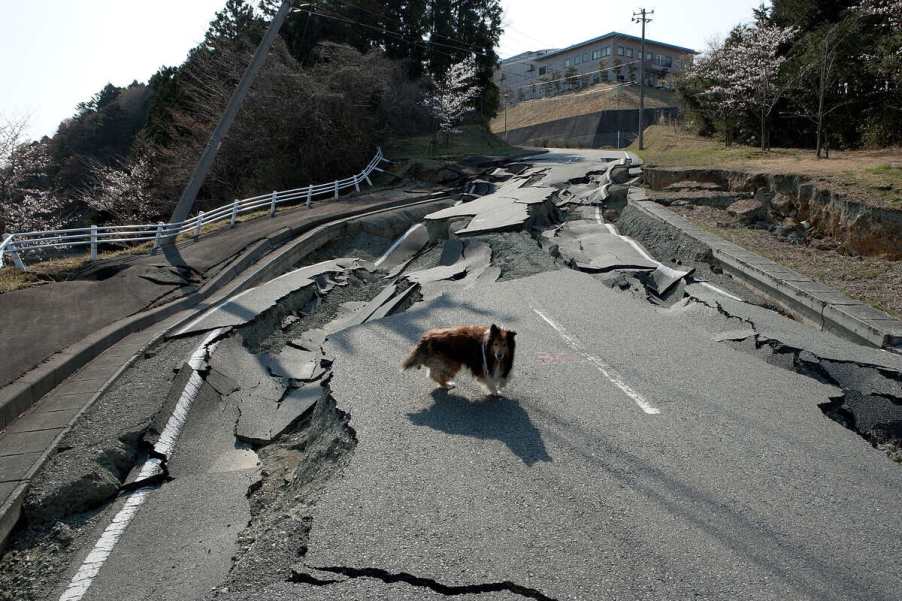
Florida Gov. DeSantis Signs Bill Allowing Radioactive Waste for Paving Roads
Today safety on Florida highways takes on a whole new meaning. Florida Governor Ron DeSantis signed a bill allowing radioactive mining waste to be used as road paving material. Several recyclable materials like shredded tire rubber, glass, and recycled mixed plastic are part of the pavement cocktail. Now, phosphogypsum is part of a radioactive road mix. Phosphogypsum causes cancer.
Labeling phosphogypsum as a recyclable material is unusual as it is a byproduct of mining phosphate. Florida has had longtime issues with the transporting and storage of the material. So this is an effort to address the piles of phosphogypsum sprinkled around the Sunshine State. The United States Environmental Protection Agency (EPA) mandates that engineered stacks of phosphogypsum for storage after the processing of fertilizer.
Has Florida ever had problems with radioactive phosphogypsum?

The state’s phosphogypsum problems go back decades. But things really came to a head in 2021. That’s when 215 million gallons of water with these toxic materials entered Tampa Bay in just a few days. This created a red tide event that killed millions of fish. The Florida Department of Environmental Protection sued, resulting in the state budgeting $3 million for clean-up.
There have been other leaks from the 27 phosphate mining sites in Florida, as well as sinkholes spreading the contaminant. So in effect, this bill reduces the burden on fertilizer companies required to handle and store the radioactive material. A staff attorney for the Center for Biological Diversity told CBS News, “History has shown wherever this waste goes, environmental contamination followed.”
But just to be clear, while its use as paving material begins to address the environmental concerns of all those phosphogypsum stacks, the EPA defines it as a “radioactive material” because it contains uranium and radium. Materials don’t get more radioactive than that. “The Clean Air Act regulations require that phosphogypsum be managed in engineered stacks to limit public exposure from emissions of radon and other radionuclides in the material,” an EPA spokesperson told CBS News.
The EPA bans phosphogypsum, so how can Florida use it on roads?

The EPA bans phosphogypsum use. It says that the passing of Florida’s bill doesn’t change its designation as such. “Any request for a specific use of phosphogypsum in roads will need to be submitted to EPA as EPA’s approval is legally required before the material can be used in road construction,” an EPA spokesperson said. If the EPA were to approve its use for paving material, it would still have to hold a public comment period to seek input for the bill.
The next step is a feasibility study for using phosphogypsum as a paving material. But feasibility studies only deal with the economics of a project. “The feasibility study that the Florida Department of Transportation would create is only aimed at addressing whether this would be a suitable construction material,” the EPA staff attorney said. “The Florida Department of Transportation is not in the position to make a finding about the health and safety of this product to Floridians and our environment.”



